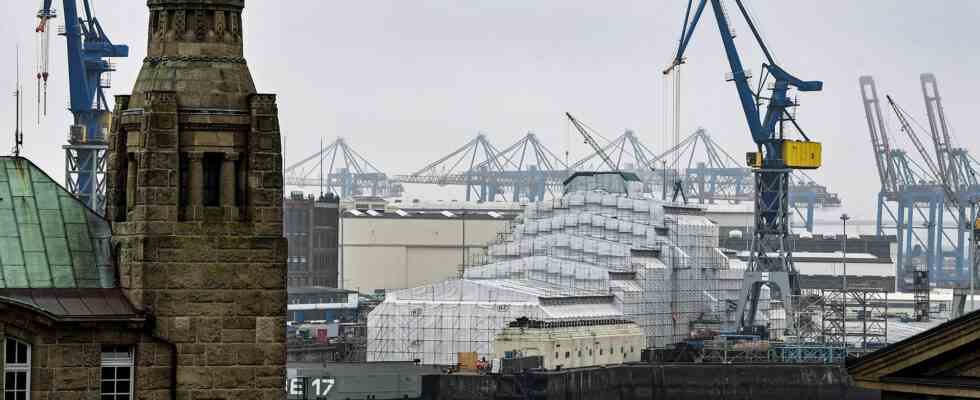Status: 04/14/2022 11:51 a.m
In the course of the sanctions against Russia, German banks have so far frozen 125 million euros. But nobody wants to talk about the successful implementation of the measures. A new law aims to remedy the situation.
When extensive sanctions were imposed at the end of February in connection with the Russian attack on Ukraine, the German government felt that it was well prepared. The Federal Ministry of Economics has said several times that there are established structures and processes and that the authorities have experience in enforcing sanctions.
But while other EU states quickly reported initial successes, for example in the confiscation of luxury yachts sanctioned oligarchs, Germany could not show anything publicly for weeks. Numerous media reported critically about supposedly unclear responsibilities and authorities that shifted responsibility back and forth.
Probably also as a reaction to this, the federal government announced in mid-March that it would set up a task force to ensure effective enforcement of the sanctions packages.
“A number of vulnerabilities”
In the first few weeks of its work, however, the task force was not able to present any results to the public either. Chancellor Olaf Scholz was asked about this in the Bundestag last week. He said: “Do we have all the necessary tools to be able to act actively in the way we would like to? And the answer to that is: no.”
Shortly before, the task force had submitted a report to the federal cabinet. In it she describes that she has “identified a number of weak points in her previous work”. A central problem is “that there is no independent legal basis for determining assets in the area of sanctions”. This means that the authorities “have to access general legal bases that are not designed for the area of sanctions”.
The task force, which is led by the Federal Ministry of Finance and the Federal Ministry of Economics, is now to draw up a sanctions enforcement law that will remedy these shortcomings. An independent legal basis is to be created for determining assets in the area of sanctions. In addition, the exchange of data between authorities is to be improved, “particularly to counter circumvention cases in which assets are moved or concealed,” according to a spokesman for the Federal Ministry of Economics.
Wissler: Should have taken measures years ago
The party leader of the left, Janine Wissler, said that ARD Capital Studio, these measures “we would have needed years ago”. There have long been reports that in Germany “systematically assets can also be concealed”.
Now it is crucial what is in the bill and when it comes. The government must present the draft quickly, and it should not only be about “Russian oligarchs”, but also about “German citizens and other citizens who of course also hide money” – not only from sanctions, but above all from sanctions the tax offices.
The chairman of the customs police union, Frank Buckenhofer, also welcomed the project in principle. He demands that the responsibilities are better regulated: “Clear responsibilities are needed so that in the end you have someone to say to: ‘You did it, you did it well or you didn’t do it well.'” Buckenhofer and his union has long been calling for the establishment of a specialized financial police force with its own powers.
Much still unclear
It is still unclear how far-reaching the federal government’s proposed legislation will ultimately be. Only a few details are known so far. A question of ARD Capital Studios The Federal Ministry of Economics did not answer the timetable this week.
Scholz said in the Bundestag last week that it was not just a legal undertaking, “but also a major technological undertaking that cannot be managed from one day to the next.” The federal government “has it on the agenda” and is pursuing it with great vigour, “not only because of the current situation, but of course also because of it.”
First successes
In the meantime, the task force has been able to report its first successes. So could leave a luxury yacht in Hamburg on Wednesday, after clarifying that the owner is not on any sanctions list. Another yacht, the “Dilbar”, which costs several hundred million euros, is not allowed to leave the port of Hamburg for the time being. It was “now legally fixed and permanently prevented from leaking in violation of sanctions,” said a spokesman for the Federal Ministry of Economics.
There is also at least a little progress with the frozen funds. The Federal Ministry of Finance announced this at the request of the ARD Capital Studios informed that German credit institutions have frozen 125,024,208.53 euros in connection with the Russia sanctions until April 8th. That is around 30 million euros more than around three weeks ago.
However, compared to what other EU member states have reported so far, this number is still relatively small.

